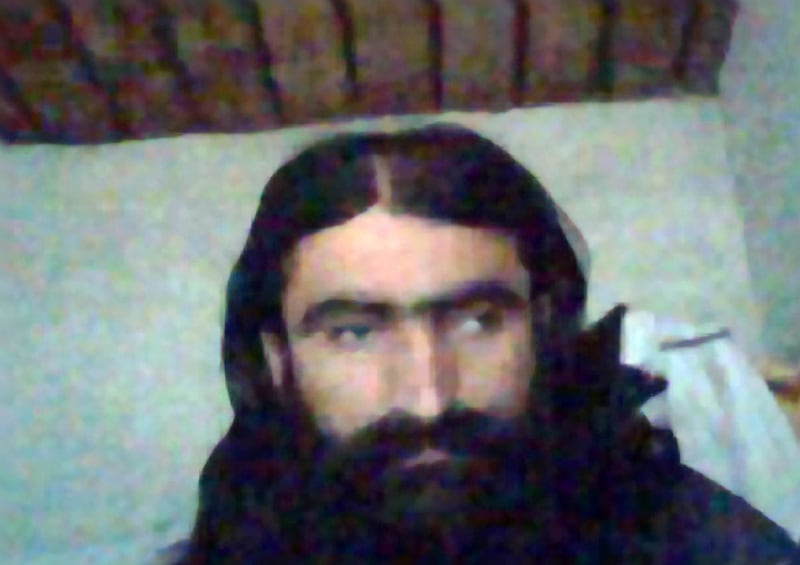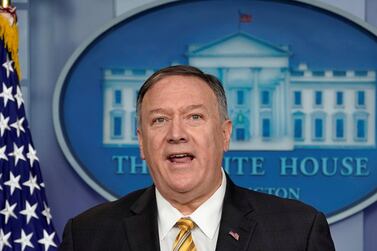The United States has designated the head of the Taliban in Pakistan as a specially designated global terrorist as part of what it said was the most significant overhaul of counter-terrorism sanctions since the attacks of September 11, 2001.
Mufti Noor Wali Mehsud was named by the US State Department alongside 11 other terrorist group leaders, giving US officials greater powers to target their finances and assets. He became head of Tehrik-e Taliban Pakistan in June 2018 after his predecessor, Mullah Fazlullah, was killed in a US drone strike.
Others named in the executive order included senior leaders of Hezbollah, Hamas, ISIS and Palestinian Islamic Jihad.
A statement said the order by US President Donald Trump would “deny these terrorists the resources to plan and carry out attacks”.
“All of their property and interests in property subject to US jurisdiction are blocked, and US persons are generally prohibited from engaging in any transactions with them,” it said.
Under Mehsud's leadership, the TTP had “claimed responsibility for numerous deadly terrorist attacks across Pakistan,” the US government said.
The militant commander and scholar, known for his pronounced squint, last year inherited a fragmented and increasingly marginalised movement that had been driven out of many of its haunts in northern Pakistan.
After a succession of offensives by Pakistan's army, the TTP has been left a shadow of the movement that had waged a bloody domestic insurgency earlier in the decade.
When Mehsud took over the group, his leadership would have had to overcome competing internal factions, militant sources said, and the likely prospect of defections to the patchwork of other extremist groups straddling the border between Pakistan and Afghanistan.
Four months after his accession, the TTP released a guidebook giving fighters detailed instructions about when to use suicide bombings, how to resolve internal quarrels and what to do with spies as the struggling group tried to impose discipline and distance itself from ISIS.
The TTP's fortunes have not improved much under Mehsud's stewardship, but they remain committed to violence against the Pakistani state, said Saifullah Mahsud of the Fata Research Centre. The group has claimed responsibility for at least one recent ambush on troops in North Waziristan. The designation may have been a gift to Pakistan from the US, which has been keen to court Pakistan's help to find a way out of its military impasse in Afghanistan.
“Not much has changed for them [under Mehsud], they are not welcome in Pakistan any more. Even if they do cross over from Afghanistan, they are hunted by the Pakistan army and they don't enjoy any public support on the Pakistan side of the border.”
Mr Trump's order also designated an Al Qaeda-linked faction in Syria called Hurras Al Din as a global terrorist group. It was established in February 2018 and has about 1,800 fighters, including non-Syrians, according to the Syrian Observatory for Human Rights.
The US Treasury also designated a further 15 “terrorists and sympathisers”, including members of Hamas and the Iran's Islamic Revolutionary Guard Corps.






